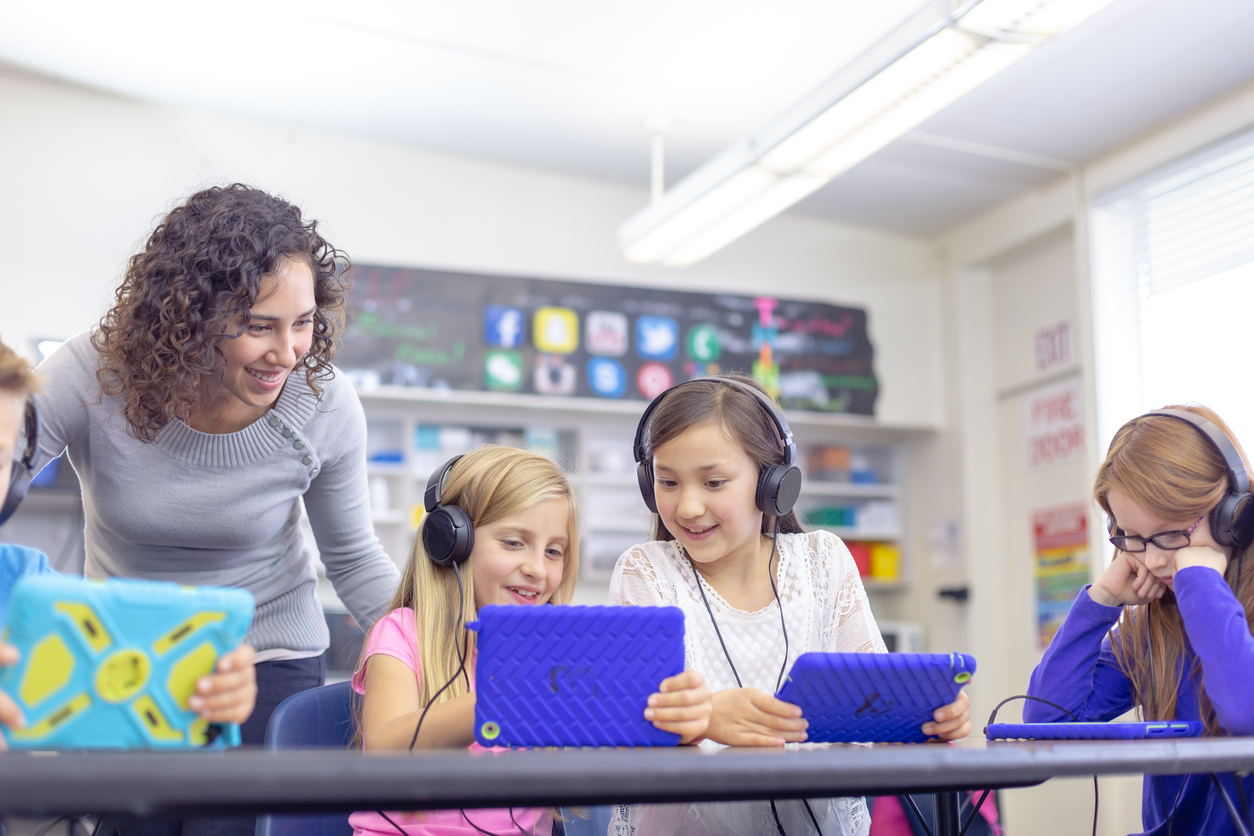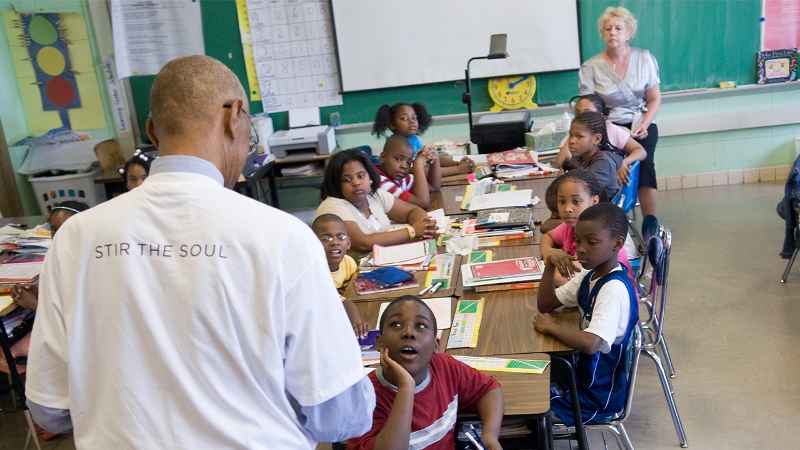Top Primary Science Tuition Singapore to Help Your Child Excel
Wiki Article
Discover the Essential Benefits of Recognizing Primary Science for Young Learners
The significance of primary science education and learning for young students prolongs much beyond mere understanding purchase; it serves as a basic column in creating important skills such as essential thinking, analytical, and creativity. Involving with clinical concepts via inquiry-based and interactive activities not just grows curiosity yet likewise lays the groundwork for resilient, certain learners.Enhancing Crucial Thinking Skills
Fostering critical believing abilities in young learners is necessary for their cognitive advancement and future scholastic success. Crucial reasoning allows youngsters to examine details, evaluate evidence, and make educated decisions, which are crucial skills in today's information-rich society. By engaging in scientific questions, young learners can boost these skills as they discover ideas via observation, trial and error, and reasoning.In main scientific research education and learning, educators can assist in vital thinking by encouraging pupils to ask questions, formulate hypotheses, and conduct experiments. This hands-on method permits children to practice problem-solving and establish logical reasoning skills. As an example, when trainees check out the residential properties of products or the concepts of activity, they learn to assess their findings seriously and draw conclusions based on evidence.
Additionally, discussions and collaborative jobs can advertise important thinking by offering chances for learners to express their thoughts, difficulty assumptions, and consider diverse point of views. By producing an encouraging atmosphere that values inquiry and representation, teachers can nurture crucial believing abilities that encourage young learners to become independent thinkers and lifelong students. Inevitably, improving these skills lays a durable foundation for their future scholastic ventures and personal development.
Fostering Inquisitiveness and Expedition

Main science education and learning provides a structured environment where young learners can explore numerous phenomena via hands-on experiments and observations. By enabling them to interact with materials and take part in inquiry-based learning, teachers develop opportunities for kids to create theories, evaluate their concepts, and attract conclusions. Such experiences nurture a sense of wonder and enjoyment concerning science.

Structure Self-confidence in Problem Solving
Building confidence in analytical is a critical part of main scientific research education that encourages young students to approach challenges with strength and creative thinking - primary science tuition Singapore. They develop important abilities in important reasoning and evaluation when kids are motivated to involve with scientific concepts through hands-on tasks and inquiry-based discovering. This process not just enhances their understanding of clinical principles yet likewise fosters a feeling of ownership over their understandingTo develop self-confidence, educators should develop a helpful setting where errors are viewed as chances for growth instead of failings. This encourages pupils to take dangers and discover various options to problems. By giving scaffolding and assistance, educators can help trainees browse complicated tasks, slowly boosting their freedom in analytical scenarios.
In addition, collaborative learning experiences, such as group tasks or experiments, can better boost pupils' self-confidence as they find out to verbalize their thoughts and listen to others' perspectives. These communications support social abilities and reinforce the idea that problem-solving is often a collective undertaking. Inevitably, growing confidence in analytic prepares young learners for future academic obstacles and furnishes them with the tools necessary for long-lasting discovering.
Urging Imagination and Development
In the realm of key scientific research education and learning, motivating imagination and innovation is essential for growing a dynamic understanding atmosphere. By fostering a society where young learners can discover ideas and experiment freely, teachers help pupils develop critical believing skills and an interest for discovery. Imagination in science motivates children to ask inquiries, develop theories, and take part in hands-on tasks that promote their creative imagination.Integrating flexible tasks and inquiry-based knowing right into the curriculum enables pupils to reveal their unique point of views and solutions. When entrusted with solving an issue associated to their atmosphere, pupils can conceptualize multiple approaches, leading to innovative end results that display their originality. This not only grows their understanding of scientific principles but additionally imparts a sense of ownership over their discovering process.
Moreover, innovative scientific research education nurtures collaboration among peers, as pupils often share ideas and improve each other's insights - primary science tuition Singapore. This collaborative spirit promotes not just advancement yet additionally essential social abilities. Hence, by focusing on imagination and technology in main scientific research education, we find here empower young learners to assume seriously, welcome obstacles, and picture opportunities, laying a strong foundation for long-lasting understanding and expedition
Preparing for Future Knowing Challenges
Young students' capability to navigate future understanding obstacles hinges on a solid foundation in key scientific research education. This fundamental understanding furnishes students with critical thinking abilities and an organized technique to analytical, important for tackling complicated issues in an ever-evolving world. Key see this website science cultivates inquiry-based discovering, encouraging pupils to ask questions, discover theories, and take part in hands-on experiments.As they establish these skills, students come to be proficient at examining data, acknowledging patterns, and attracting educated final thoughts. Such proficiencies are important not just in scientific fields yet also in engineering, math, and technology (STEM), where interdisciplinary expertise is increasingly critical.
In addition, primary scientific research education and learning cultivates a sense of inquisitiveness and resilience in young learners, enabling them to check out obstacles as possibilities for growth. As they experience and get over obstacles in their scientific explorations, they develop confidence in their capability to introduce and adapt.
Ultimately, a strong foundation in primary science not only prepares young learners for academic quests however likewise furnishes them with the tools needed for long-lasting understanding and flexibility in a rapidly changing global landscape. By investing in primary science education and learning, we are spending in the future possibility of our learners.
Conclusion
Understanding primary scientific research is crucial for young students, as it cultivates essential reasoning, curiosity, and imagination. Engaging with scientific concepts through hands-on experiments builds and improves analytical abilities strength. This fundamental understanding not only outfits trainees to evaluate information and identify patterns however also supports an inquiry-based mindset. Inevitably, the benefits of key science education and learning prepare kids for future scholastic searches and impart lifelong understanding practices important for flourishing in an ever-evolving world.The importance of main science education and learning for young learners prolongs much past mere expertise acquisition; it serves as an essential column in developing vital abilities such as critical thinking, analytical, and imagination. By developing an encouraging environment that values inquiry and reflection, teachers can nurture critical thinking skills a knockout post that empower young learners to end up being long-lasting students and independent thinkers. Hence, by focusing on creative thinking and development in primary science education, we empower young students to think seriously, welcome obstacles, and envision opportunities, laying a solid structure for long-lasting discovering and expedition.
Young students' capability to navigate future knowing challenges hinges on a solid structure in main science education.Understanding primary scientific research is critical for young students, as it promotes vital reasoning, inquisitiveness, and creative thinking.
Report this wiki page